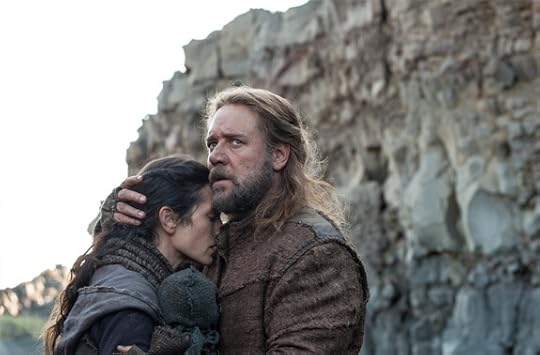"'Noah': A Theological Reflection" by Steven D. Greydanus

Russell Crowe stars in "Noah", the just released film from writer and director Darren Aronofsky (CNS photo)
Noah: A Theological Reflection | Steven D. Greydanus | CWR
Darren Aronofsky’s controversial film is sometimes divisive and divided, but is also deeply serious about essential questions
Neil deGrasse Tyson—the prominent astrophysicist and science popularizer whose reboot of Cosmos is currently airing on Fox and the National Geographic Channel—was asked a few years ago “which books should be read by every single intelligent person on the planet.” Tyson’s #1 pick, the Bible, would have been unremarkable if not for his flippant parenthetical rationale for this choice: “to learn that it’s easier to be told by others what to think and believe than it is to think for yourself.”
Reading those words (tossed off, to be fair, in a comment on Reddit), I wonder how many nonreligious scholars of the humanities have winced at Tyson’s parched, polemical assessment of the value of reading the Bible. As basic cultural familiarity with the most elementary aspects of the Bible’s contents dwindles in our post-Christian culture, a complacent dismissiveness toward the Bible as an antiquated compilation of benighted Bronze Age myth and superstition unworthy of any educated person’s time (except perhaps to understand the opposition) becomes ever more viable.
Taking Scripture Seriously
Some might argue that Darren Aronofsky’s Noah, with its wild elaborations upon the text of Genesis, can only further contribute to biblical illiteracy. Yet for all its dramatic and cinematic liberties, Noah is profoundly engaged with its source material. Noah takes Genesis seriously as a text worth reading carefully and thinking about deeply in its own right.
Raised culturally Jewish, Aronofsky is an atheist, but has long been fascinated by the story of Noah (since writing a contest-winning poem about the dove and the ark in 7th grade, and reading it aloud at the United Nations). Development on the film dates back over 15 years. (With co-writer Ari Handel, Aronofsky has also scripted a graphic novel about Noah based on an early screenplay for the film.)
Noah is the work of a filmmaker deeply familiar with the story of the great flood, not only in its canonical form in Genesis, but also in other ancient Jewish texts, from the books of Enoch and Jubilees to rabbinic commentaries and midrashic retellings. In some ways it reflects the influence of our secular age; in offer ways it a bracing challenge to it. It is a divisive film and a divided film, one that seems almost to be arguing with itself, and about which those arguing on all sides may at turns have a point.
Carl E. Olson's Blog
- Carl E. Olson's profile
- 20 followers



